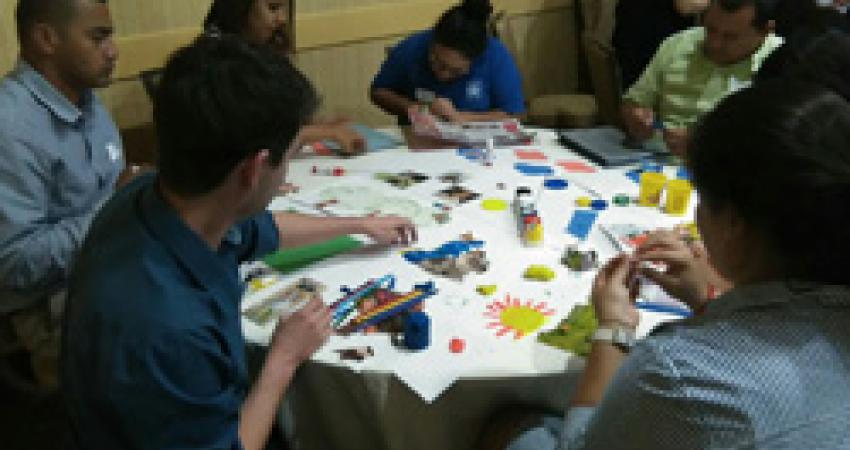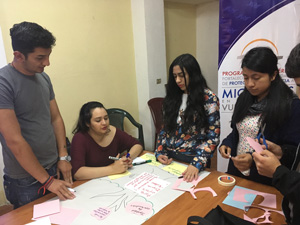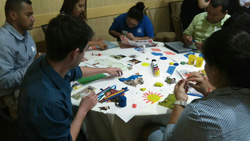IOM provides psychosocial care tools to migrants’ caregivers

Tapachula, Mexico. Based on the premise that, without emotional health, it is not possible to provide adequate assistance to migrants, the Mesoamerica Program organized a Regional Workshop focused on the psychosocial care, and care of the personnel that serves migrants in Mesoamerica.

The workshop is mainly aimed at hired and volunteer staff of migrant shelters, most of them managed by government institutions and civil society organizations, as well as staff from detention centers, shelters or migrant stations for irregular migrants, institutions and organizations of civil society that in their work carry out psychosocial attention.
"We had always approached migrants from the point of view of security, but not from the human side. This couple of days of the workshop have been very important to me for that; to see the human part, because they are vulnerable people who have been going through difficult situations”, explained Miguel Delayana, Department of Foreign Control in Nicaragua, one of the course participants. "Also the subject of self-injury, that's totally new and I had not thought of it in that way. Even eating at the right time is a way of taking care of ourselves and being able to provide better care to migrants, "he added.

The psychosocial care workshops offered by the Mesoamerica Program, also at the local level, seek to strengthen the capacities of people dealing with the physical and emotional exhaustion that their work implies, thus preventing negative impacts on their health and of the people they serve.
Through hands-on activities and exercises, participants are able to appropriate techniques that can make their work easier, for example, by developing the ability to ask appropriate questions in a conversation that allows them to welcome emotions, explore the future, and recognize strategies of coping and strengthening ties of affection and trust.
"In the region there are people with physical and psychological consequences resulting from migration, in some cases survivors of acts of violence or irregular migrants who, combined with the aforementioned consequences, often experience confusion, demotivation, uncertainty, anxiety and frustration for being in a process of deportation to their country of origin and to see their truncated migratory project. Officials who face such situations also need to manage their emotional burdens in order to provide the best response and care to migrant populations. That is the reason why we organize this type of activities” explained Noemy Serrano, thematic expert and facilitator of the Mesoamerica Program’workshop.
The session, held in Tapachula, was attended by 30 representatives of the Migration, Children, Police and Foreign Affairs institutions as well as some shelters in Mexico, Guatemala, Honduras, El Salvador, Nicaragua, Costa Rica and Panama.
This training process creates psychosocial skills for the care of migrants based on the Manual for Psychosocial Care for Migrants that has been developed by IOM for this purpose. The ultimate goal is that people who are trained can replicate the model in their respective countries.
The Mesoamerica Program focuses on accompanying and strengthening the capacities of governments and civil society in assisting migrants most at risk for irregular migration and promoting safe, orderly, and regular migration and is funded by the United States Department of State - Population, Refugees and Migration (PRM).